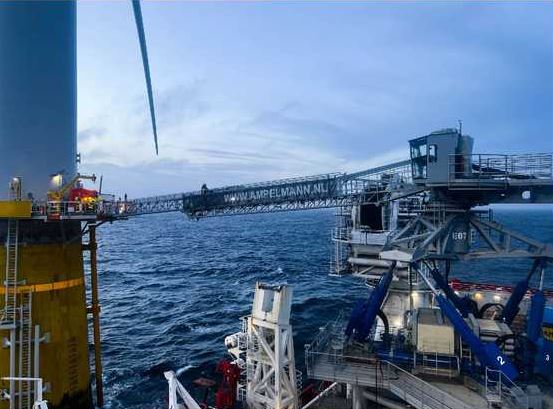
Hywind Tampen, the world’s largest offshore wind farm, is located approximately 140 kilometres offshore the Norwegian coast.
Floating wind farms, like Hywind Tampen, require motion-compensated systems that can provide consistent and reliable offshore access, said Ampelmann.
The company added that the E1000 is Ampelmann’s access solution for conditions like those at the floating wind farm since the gangway is ideally suited for work in variable sea conditions and to compensate for the divergent motions of vessels and floating turbines.
Able to withstand waves up to 4.5 metres, the gangway can convert into a crane within minutes and has a lifting capacity of one tonne.
“The coming years will see the explosive growth of the floating wind market in Europe, Asia and the USA, and with this project we are gaining invaluable expertise in the field. We want to contribute our knowledge and experience as a global offshore access provider to this sector as it develops”, said Maichel van Nauta Lemke, Ampelmann’s Business Developer for floating wind.
The Hywind Tampen floating offshore wind project is the first wind farm that will supply electricity to oil and gas platforms.
The project has a system capacity of 88 MW and is expected to meet 35 per cent of the electrical power demand on the Gullfaks and Snorre fields. This will cut CO2 emissions from the fields by about 200,000 tonnes per year, according to Equinor.
The power from the first wind turbine, which was installed in June last year, was delivered to the Gullfaks A platform in the North Sea in November 2022.
The floating offshore wind farm was initially scheduled to be completed by the end of 2022, but due to some deviations found in steel quality in four tower sections and supply chain bottlenecks, the completion of the wind farm has been postponed to 2023.